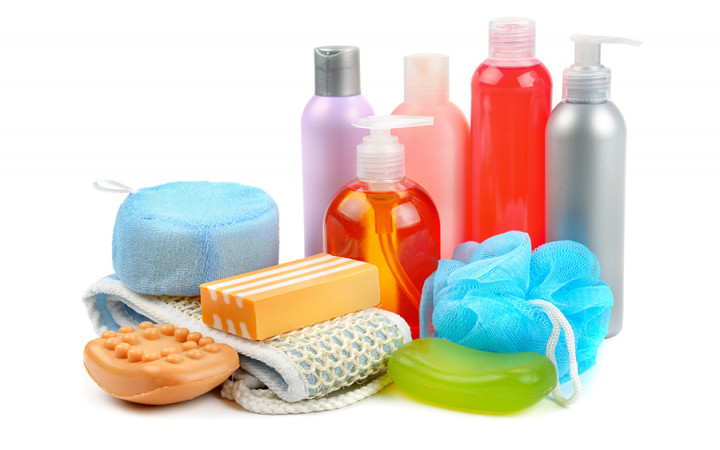Today’s Wonder of the Day was inspired by Wryn. Wryn Wonders, “Why is there shampoo?” Thanks for WONDERing with us, Wryn!
Your alarm goes off and you immediately want to hit the snooze . Nine more minutes of sleep would be really great about now. Then you remember: it's picture day at school.
No extra sleep for you! You roll out of bed and head to the shower. You've got to look your best today. Who wants a picture with crazy hair that'll forever haunt you in the yearbook?
As you step into the flow of warm water from the showerhead, your sleepiness washes away down the drain. You let the water cascade across your shoulders and down your back, a gentle massage to start the day.
Just warm water isn't going to get you clean and ready for the day, though. You need to wash your body and your hair. You look at the assortment of bottles in the shower: shampoo, conditioner, body wash.
Can't you just use one of these? Shouldn't they be interchangeable? After all, they're all just different versions of soap, right? Well…not exactly. Body wash is liquid soap designed to wash your body (of course!), while shampoo and conditioner are specifically formulated for your hair.
Although shampoo and body wash may look, feel, and smell similar and have a few common ingredients, there are many differences. To start, they have very different targets.
Your skin is a living organ that regenerates its outer layer on a regular basis. Your hair, on the other hand, is mostly dead material that has grown from live cells that exist below the surface of the skin.
Soap was created long before shampoo. Over time, however, the need for shampoo became clear, because using soap caused hair to become dry, rough, and damaged. Soap simply tends to be too strong for regular use on hair, since it strips away hair's natural protective oils.
Proper hair care is complicated by the fact that there are many different types of hair with varying compositions. That's why you'll notice the shampoo aisle at your local store has so many different types of shampoo for a wide variety of applications, such as dry hair, oily hair, color-treated hair, etc.
Each special formulation requires unique ingredients to properly treat a specific type of hair. Shampoos also need to be delicate, able to cleanse without degreasing, easy to rinse out, and formulated to minimize eye irritation. Most shampoos have a pH level between four and six, which is close to the natural pH level of hair.
Even if you're tempted to use shampoo on your skin instead of body wash, you'll find that it often leaves your skin feeling slimy. Soap or liquid body wash is formulated with stronger detergents for your skin, which can often contain more oil and dirt than your hair usually does.
While liquid body wash tends to be less specialized than shampoo, body wash manufacturers have expanded their product lines to contain products with moisturizers, conditioners, and fragrant scents.
Some products may even claim to be an all-in-one combination of shampoo, conditioner, and body wash. If you use these products, though, just be aware that they might not be the best product for either your skin or your hair!




